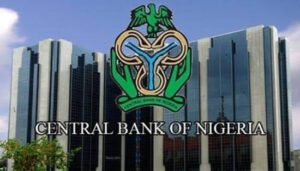


FG plans to disburse loans to MSMEs within 14 days
By Sodiq Adelakun
In a bid to reduce the mortality rate of businesses waiting for loan approvals, the Federal Government is considering implementing solutions that will ensure the disbursement of loans to Medium, Small, and Micro Enterprises (MSMEs) within 14 days.
This announcement was made by the Senior Special Assistant to the President, Temitola Adekunle-Johnson during the Inaugural Job Creation and MSME Quarterly Communications Forum held in Abuja.
The government’s objective is to achieve a single-digit loan interest rate for MSMEs and make it the standard for small enterprises.
Adekunle-Johnson emphasised the importance of providing seamless and easy access to funding for SMEs. The current lengthy loan approval process, which can take up to six months, poses a significant risk to businesses, as they may fold up during this waiting period.
According to Adekunle-Johnson, the end point is to achieve a single-digit loan for MSMEs and ensure a single-digit loan becomes the norm for small enterprises.
He said, “We are trying to achieve a target of being able to guarantee seamless and easy access to funding for SMEs. We want SMEs to be able to apply for a loan and get it approved within 14 days at worst, and not in six months because some of these businesses can fold up within those six months of waiting for loan approval.
“The disbursements will be quick after the loan assessment is processed. That would help us reduce the bottlenecks of MSMEs running from pillar to pole looking for funding and not even having the collateral to achieve the loans.
“The end point is to achieve a single-digit loan for MSMEs. We aim to ensure single-digit loans become the norm for MSMEs.”
The government has announced a partnership with Access Bank to set aside N50 billion to support skills acquisition by five million Nigerians under the job creation initiative of the Federal Government called ‘YouThrive’ by Access.
The initiative is looking at empowering MSMEs in different ways by building their capacity, and access to affordable finance as well as digital, technical, and skill acquisition training for them.
Speaking on the initiative, the Head of Non-Financial Services, Access Bank, Chioma Ogwo, said participating small businesses would be empowered in different ways, including building their capacity and giving them access to affordable finance, besides providing them with the digital, technical, and skill acquisition training to thrive and create wealth.
“We are giving them affordable loans at 15 percent and free grants to deserving SMEs, who have done very well. We have a business exchange programme for the beneficiaries that would enable the SMEs to go and exchange ideas with their counterparts in other countries.
“We are looking at empowering four million in four years – one million yearly. 700,000 would be given as access to finance every year. We have also earmarked N50bn for this intervention and it will be reviewed after one year,” she enunciated.
Meanwhile, the Director-General of the Small and Medium Enterprises Development Agency of Nigeria, Charles Odii, disclosed that three million jobs were lost to flooding in Nigeria in 2023.
He did not give details on specific figures about the flooding that wreaked havoc on lives and properties.
He said the government had developed a technology to alert of an impending danger of flooding across the states, a development he said would help the government to take proactive measures to evict potential victims.
He said SMEDAN was helping to mitigate the challenges faced by MSMEs, especially production costs and low rent to enable them to be productive and support the economy.
According to Senator Ibrahim Hadejia, who is the deputy chief of staff to President Tinubu, MSMEs provide resilience and agility to any economy.
He added that a country with a robust MSME sector would have a buoyant economy and be able to adapt to some of the current global shocks.
“This kind of partnership with Access Bank is very important to growing SMEs. It is also important to look at the impact of technology on agriculture as a major contributor to the nation’s GDP growth rate.
“If we get it right, our yields on some of even our most common crops will improve. We need that to improve our output. It will also encourage the younger generation to participate,” he remarked.



